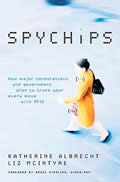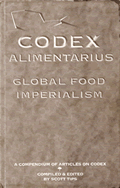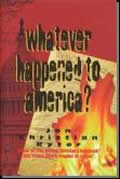TAXING TAXES
By Jon Christian Ryter
May 21, 2008
NewsWithViews.com
One of the most opaque facets of America's tax system is the covert manner in which the 50 States tax the federal consumer taxes (i.e., exise taxes) we pay to the federal government. Yes, that's right. Our taxes are taxed and nobody seems to notice. We've been paying State taxes on a large portion of the federal taxes we pay for so long as that the media industry apparently considers these billions to be so trivial that its not worth their effort to raise the specter that there may be something wrong with the States taxing the taxes we pay to Uncle Sam.
Most Americans don't realize that tariffs (i.e., taxes on imports) and various excise taxes are still levied on consumer durable goods if those items are considered to be unessential "luxuries." Those luxuries might include what all of us view as essential necessities—like cars, refrigerators, air conditioners, ranges, dishwashers, billfolds, purses, belts and, one of the least luxury items we own—leather shoes. Other "unessential" things are tires for your unessential car and, if you're a betting person, the winnings you receive at the race track.
Some tariffs and excise taxes are exempt from "double-dipping" taxation because Uncle Sam collects them at the same time Uncle Gomer collections his at State level. When you stop at the neighbor one-arm bandit (i.e., gas station), you pay the federal gasoline taxes and the State gasoline taxes at the same time. However, any federal tariffs assessed on foreign oil at the refinery are double, or perhaps, triple taxed since the refinery pays a tariff. The direct import tax on a barrel of crude going to the refinery is 3%. This is the first tax assessed to the barrel of oil when it "lands" here.
Let's keep it simple and say that barrel of oil costs $100.00. The refiner pays $103.00 for the crude. Now there is a VAT (value-added tax). This is the excise tax assessed on consumer durable goods. (As of last November, the VAT was 12%. The 12% surcharge isn't assessed to the original price, it is assessed to the price of the product delivered to the refinery, or in this case, $103.00. The VAT is $23.60, bringing the cost of that $100 barrel of crude to $123.60. Interestingly, Uncle Sam just taxed their own $3.00 direct import tax with an additional 36¢ tax. That is a federal tax on a tax. Usually the tax-on-tax is a State tax on a federal tax. But Uncle Sam is an "equal opportunity" tax agency. The federal government will tax their taxes whenever they can.
Now, let's imagine for a moment that oil stays over $120 barrel, or goes even higher (a reality). And, then let's imagine that Sen. Hillary Clinton [D-NY] somehow manages to eke out a primary victory over Sen. Barack Obama [D-IL] (not likely), and then let's assume she manages to win in November even though she cannot constitutionally seek the office of President (more likely than Obama winning). Then suppose she imposes a punitive windfall profits tax on the oil industry (an absolute certainty). What happens? Who pays the tax?
You guessed it. The consumer does. Every tax levied against any corporation in the United States is rolled into its cost-of-doing-business, increasing the wholesale price of the product and passed directly onto the consumer. Since windfall profits taxes are assessed to the oil companies before the refined gasoline ends up in the pumps, the States have an opportunity to tax the federal tariffs and excise taxes. (Gasoline is one of only a few products exempt from the State's ability to tax a federal tax since each tax is computed into the retail price at the pump.) But, there are tons of other opportunities for government to double dip since tariffs and excise taxes are generally buried into the price of the consumer product to keep the consumer from finding a way to avoid paying it. The best example of this is cigarettes and other tobacco products.
So, let's talk about the Bill Clinton-engineered settlement against the tobacco industry. On June 20, 1997 the tobacco industry agreed to settle all of the lawsuits against the industry for $368.5 billion. The proceeds were to be paid to the State treasuries over 25 years. What most Americans didn't know was the tobacco industry was allowed to pass 100% of the judgment directly to the consumers who could still afford to smoke or who were so addicted to cigarettes that they couldn't stop. Although the settlement made it clear that no government official was a party to the settlement, three Senators attempted to create legislation to make the settlement "law."
Presumptive GOP presidential nominee Sen. John McCain proffered S.1415 to track the settlement agreement and make sure the industry paid the assessment. Senators Orrin Hatch and Edward Kennedy offered S.1530 and S.1492, respectively, to create a compensation package for the "victims" of cigarettes. The average tax on a pack of domestic cigarettes on Nov. 1, 1996 was $1.96. The average cost of a pack of domestic cigarettes on May 14, 2008 was $4.18. New Yorkers pay $5.82 per pack of which $2.11 are taxes. Arizona smokers pay $5.62 a pack, with $2.69 of that price in taxes. Alaska smokers pay the most. They pay $6.17 a pack; $2.39 of the price is to pay the taxes. The cigarette industry's "factory price" (less taxes) for a pack of cigarette is $2.28.
The federal tax on a pack of cigarettes is 39¢. The distributor and retail markups range from 42¢ (Indiana) to $1.50 per pack (Alaska). Washington State tacks on the stiffest tax package at $2.78 per pack. In terms of carton prices, $27.80 of the price of a carton of cigarettes in Seattle are taxes. The Washington State sales tax is 6.5¢. In that State, communities may tax consumer products as well, with local taxes ranging from 0.5¢ to 2.4¢ per dollar purchased. In a worst tax scenario, a Washington State consumer buying a carton of cigarettes will pay an additional tax of $2.47 on the $27.80 in taxes. More taxes on taxes.
Consumer durables, unlike producer durables, are construed to be products that are not used to create other products since they are purchased by individuals for personal use. For example, while industrial use computers are construed to be producer durables, computers that target consumer: Compaq, Gateway or Acer, and the low priced "consumer use" Dell, or the serious computer geek, the Apple iMac are considered to be consumer durables. Buried in the wholesale price of these consumer products is an excise tax. When you go to Circuit City, Radio Shack, Computer City or Walmart and buy one, you are paying a State sales tax on the federal excise tax. Taxing taxes.
Prior to 2003 excise taxes were found on passenger cars ("gas guzzlers" are still taxed), boats, furs, jewelry and private use airplanes. "Nonessentials" such as certain vaccines, sporting goods and fishing equipment, all forms of fuel, telecommunications equipment and telephonic services, tickets for ocean cruises and international air travel (this is an excise tax created by Bill Clinton to be paid to the United Nations). There are even excise taxes on black lung benefits and some pension plans and Individual Retirement Accounts. If you purchase life insurance from an insurer outside the United States, the benefits received by the US recipient will be affected by an excise tax. (Insurance benefits from domestic insurance companies are tax free.)
Most people are aware of the excise taxes on cigarettes and other tobacco products, distilled liquor, wine and beer, guns and ammunition. And, they understand about tariffs on foreign goods. Or, at least, they think they do. Tariffs are the least understood taxes in the world. While sometimes a considerable part of the price of the consumer product, tariffs are never seen on the sales receipt with the sales tax. If you asked, most consumers would likely be inclined to assure you that tariffs ceased to exist when NAFTA was enacted by Congress and signed into law by Bill Clinton. They are convinced of this because NAFTA created the swinging door that allows cheap American-branded goods, made in Mexico or Canada, back into the United States tariff-free. Of course, they know that Chinese goods, Indonesian goods, Pakistani goods and US branded goods made elsewhere in the world are funneled into the United States through Mexico to avoid costly tariffs that will make these goods less desirable to American consumers.
Tariffs and excise taxes have always been promoted by government officials as a tax on the rich. That's why they were called luxury taxes. And, until the 1960s, they were added point-of-sale. But when consumers began to see the cost of a new gas or electric range—or a new pair of leather shoes—increased by 10%, they stopped buying those consumer products. When the merchant princes demanded the revocation of all excise taxes, Uncle Sam made the tax invisible by adding it to the wholesale price of the product and providing the States an infinitesimal profit by allowing them to tax those tax. To the taxmasters, it was one of those win-win situations. Only the consumer lost because, contrary to the expectations of the Constitution, they were no longer allowed to see the tax they were obligated to pay.
In their website, the State of Ohio notes that "The Federal government and the State of Ohio impose excise taxes which, depending on their nature, may or may not be included in the total amount (price) subject to Ohio sales or use tax. The revision of this release eliminates reference to the federal luxury tax, which ended January 1, 2003." (Revision to Ohio tax code, Feb. 2007)
"Assuming that the item sold is subject to Ohio sales or use tax, the amount attributed to an excise tax imposed on the manufacturer, distributor, wholesaler, or retailer (someone other than the final consumer) by the federal government or the State of Ohio is part of the "price" used for calculating sales or use tax. This applies even if the tax is separately stated on the invoice. For example, the State of Ohio imposed an excise tax on cigarettes. This tax is required to be paid by the wholesaler before the cigarettes can be sold to retailers. Each pack of cigarettes upon which the tax has been paid by the wholesaler is marked with a tax stamp. Because this tax is imposed on the wholesaler and not directly on the consumer, it becomes part of the "price" for calculating sales and use tax."
Excise taxes, like tariffs, are indirect taxes. When our nation was formed these were the only types of taxes that could be levied. Since excise taxes were "add-on" taxes, you could avoid taxation simply by not purchasing the items that carried excise taxes. For that reason, taxation in colonial America was theoretically voluntary. However, since many of the items taxed were essential for the colonial family to live, they really weren't "voluntary" because not having the products you needed to survive was the price for avoiding the tax. However, when the tax or tariff becomes invisible, it is no longer a voluntary tax. It's mandatory.
When taxes are concealed in the wholesale cost of the goods sold, and sales or use taxes are assessed to the services or goods, people are doubled taxed, and pay taxes on taxes on the same item. Samuel Adams, one of the more radical Founding Fathers, described excise taxes as a ploy of government to levy unnecessary taxes on the people. Excise taxes, if properly assessed on truly nonessential items, would become a tax on discretionary spending. It would also truly become a tax on those who could afford to pay it, and not on the poverty class that buys only those things essential to live. Nonessential items might be things like golf clubs, boats, hunting or other sports equipment, computers, TVs, stereo equipment, Jacuzzis, Jenn-Air ranges, induction cooktops (rather than traditional gas or electric cooktops) or any other nonessential item that people can comfortably live without. Excises taxes should be removed from all essential goods, leather shoes leading the list. Baggy hip-hop pants that guarantee the crack in your butt, or your dirty underwear, shows should carry a punitive excise tax. Not only are they not essential, they are in bad taste.
Even more, States or national governments should not be allowed to covertly levy and hide ideological excise taxes ostensibly designed to fight pollution that are, in reality, global taxes levied nationally, but used to fund the phony, philosophical "war on global warming" (since global warming and cooling are cyclic events caused entirely by solar storm cycles); nor should they be allowed to assess carbon taxes on gasoline or fossil fuel electric generating plants, and bury those taxes in the wholesale or retail price of related products and/or services and then let the States tax those taxes which have been disguised to look like the goods or services the consumer is buying.
The far left in Canada, led by Liberal leader Stephane Dion, is fighting to implement what Dion calls a "revenue-neutral" carbon excise tax that theoretically will help eliminate carbon dioxide. The carbon excise tax would be levied on gasoline consumption and also on the electric bills of Canadian consumers to fight global warming by cutting carbon dioxide emissions. Revenue neutral carbon taxes—which will be offered by the industrial governments as a means of stopping the jobs transfer of their industries to third world countries where carbon dioxide pollution, strangely, does not appear to pollute—will allow those nations to buy carbon credits from the third world rather than lowering carbon dioxide emissions by curbing manufacturing. What the carbon tax really amounts to is a global tax on the working class of the industrialized nations—particularly the working class of the United States that the world believes is too affluent—under the guise of "buying" unused carbon credits from the underdeveloped countries. It is merely a UN tax to generate funds for the UN's societal programs in the third world.
|
Subscribe to the NewsWithViews Daily News Alerts! |
Ben Franklin told us that "...[i]n this world nothing is certain but death and taxes." He was right. But what he failed to tell us the myriad ways governments find to tax us to death, and how easy it is for any bureaucracy to find new ways to take our money. But absolutely nothing is more devious that the ploy of burying taxes and making them appear as part of the price of the consumer goods and services we buy, and then taxing those taxes with a sales or use tax.
� 2008 Jon C. Ryter - All Rights Reserved
[Read "Whatever Happened to America?"]















